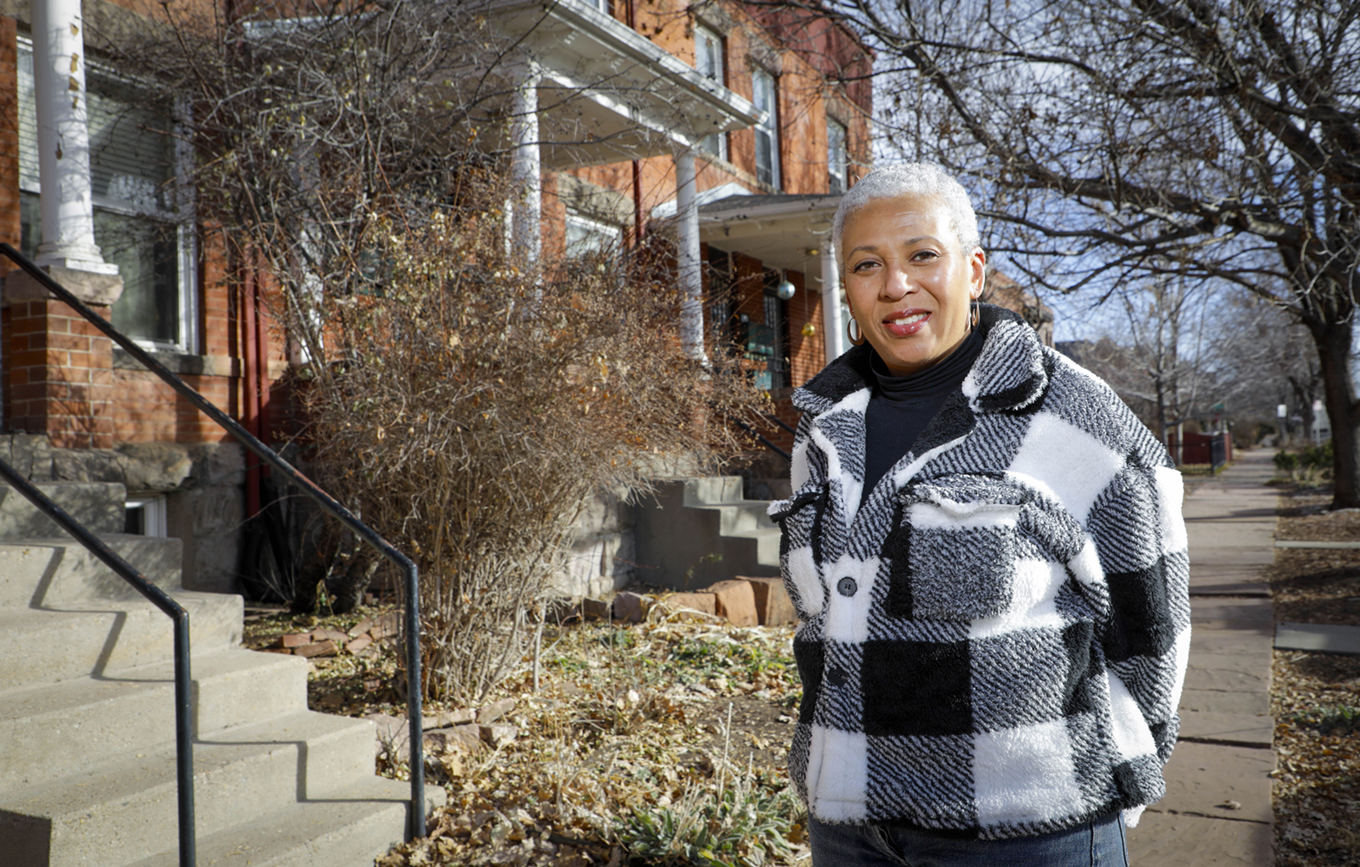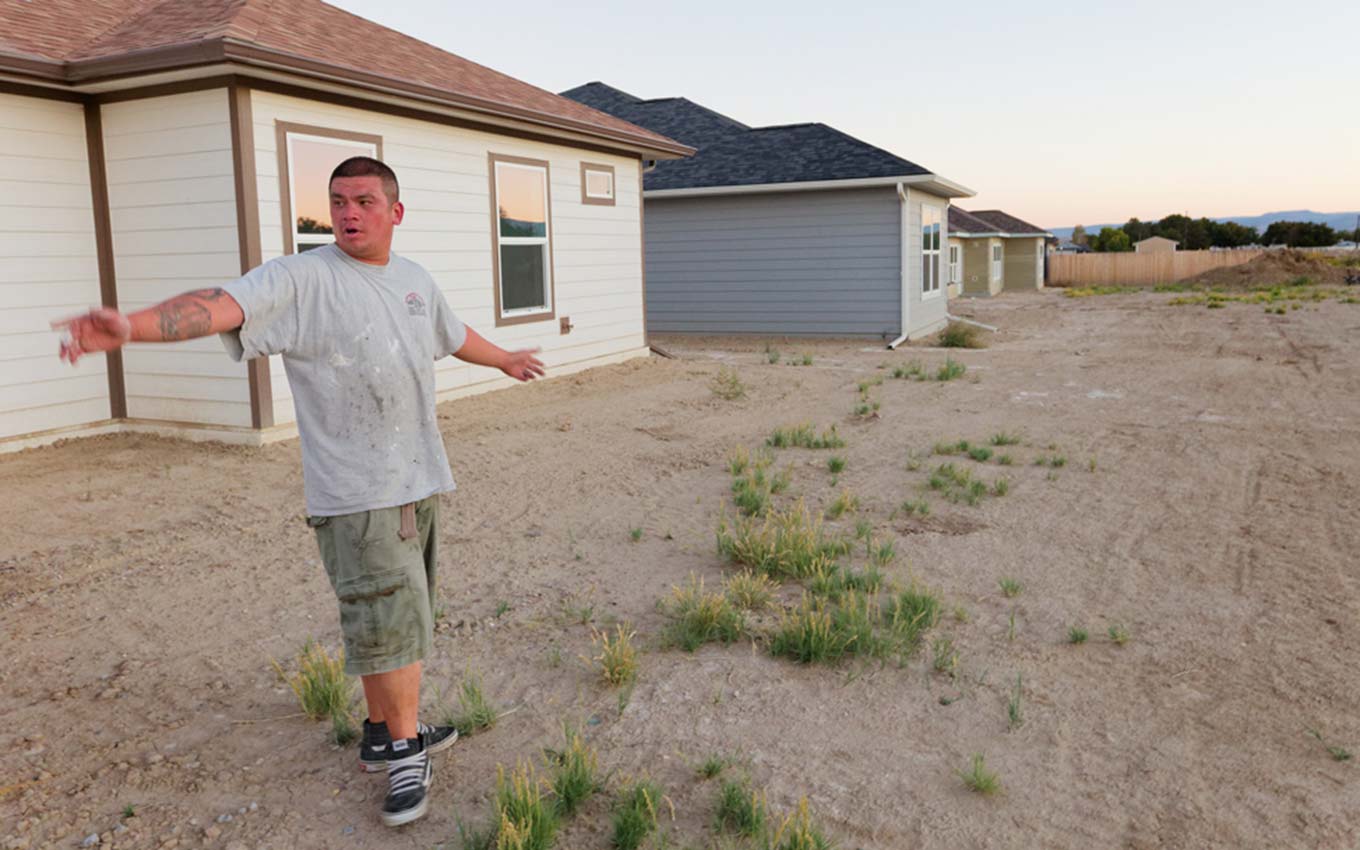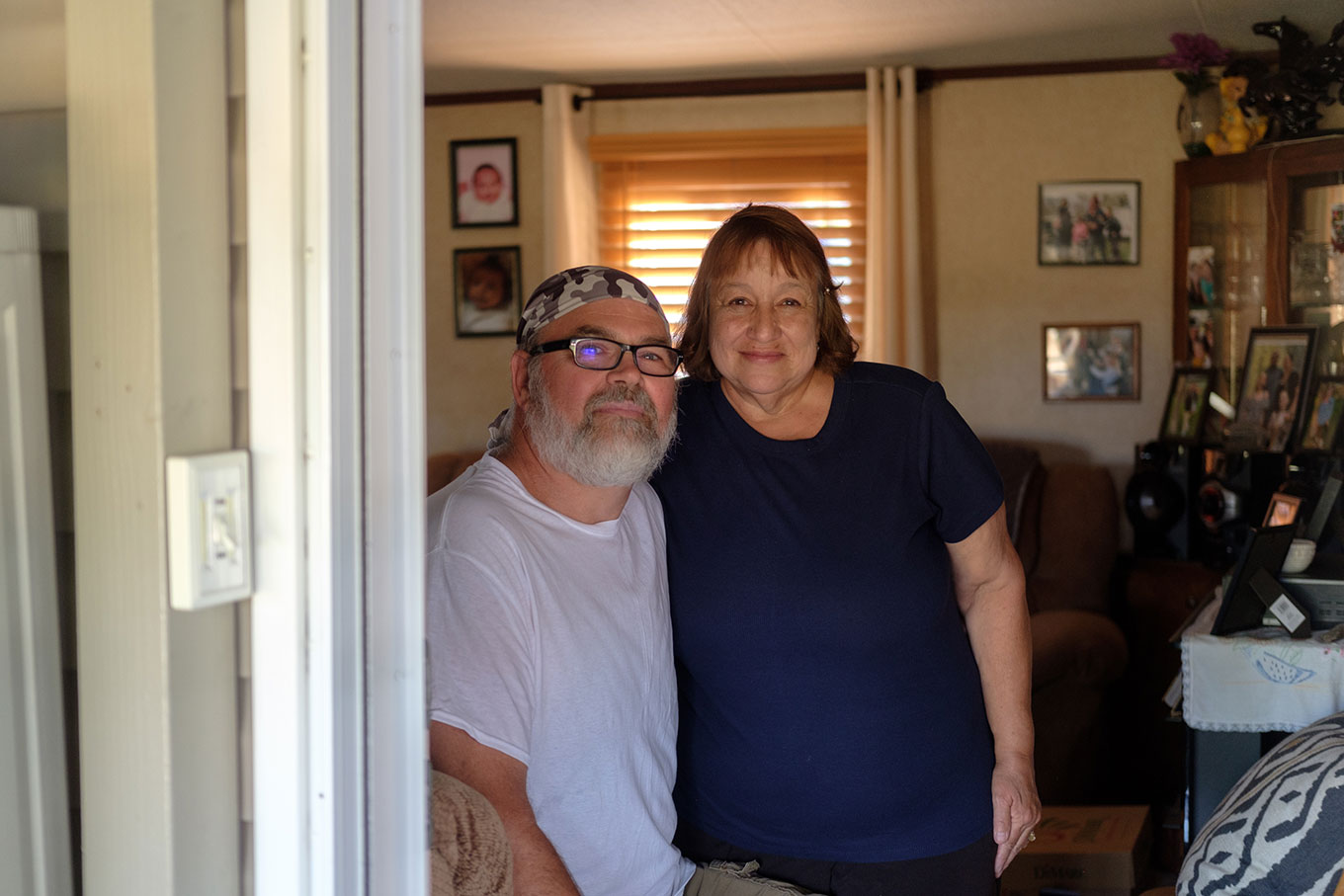On a Thursday night in November 2021, a boisterous crowd crammed into Glenwood Springs City Hall for the regular biweekly city council meeting.
“I’ll see you after the meeting, Jonathan,” a man shouted threateningly at Glenwood Springs Mayor Jonathan Godes, per Aspen Times coverage of the event.
Another person in the audience called Mayor Pro Tempore Charlie Willman a “chicken sh*t.”
The issue prompting such heated rhetoric centered on a 16-acre empty lot behind a mall in West Glenwood, a residential neighborhood one exit past the town of Glenwood Springs on Colorado’s Western Slope. Long zoned for commercial use, the lot—a grassy pasture owned by a local family, the Diemozes, since the 1960s—had become a treasured feature of the community: a nice view buffering them from the I-70 freeway, fast-food joints and car dealerships just beyond.
The Diemoz family wanted to develop the lot, and R2 Partners, a Cincinnati and Roaring Fork Valley-based developer, was proposing to build a housing development that included 272 apartments and 40 townhomes. After more than a year of discussions, public meetings and multiple amendments to the proposal, known as 480 Donegan, the Glenwood Springs City Council had voted to rezone and annex the Diemoz property into city limits so R2 Partners could proceed with their plan. To sweeten the deal, the developer had included a number of perks and concessions: extra affordable housing units, space for a new fire station, two new access points onto the freeway, and funding for a new fire evacuation plan.
For two hours, the attendees, who largely identified as West Glenwood residents, berated council members for voting to approve the annexation and property rezoning the previous month. They threatened to recall the councilors, expressing concerns that ranged from increased traffic congestion and inadequate water supply, to more nebulous fears about the potential new neighbors.
Jennifer Vanian, a meeting attendee, said she was concerned that a development of 480 Donegan’s size “would attract too many trade workers to the area.”
“I could see them earning more here than they might back home, and realize they could earn even more in Aspen, so they decide to move here, too,” Vanian also said, as the Aspen Times recounted it.
In a follow-up interview, Vanian clarified that her main reason for opposing the 480 Donegan proposal was actually the fire hazard—but that she also did not believe the city had the resources or plans in place to absorb that many new residents.
“We got to think about who we let in,” said Lori Welch, another attendee at the November 2021 meeting, per the same media coverage. (Welch later clarified that she was referring to limits on how many people can live in Glenwood due to available water and land resources, adding that the 480 Donegan development would have had to be 100% affordable housing for her to consider supporting it.)
The meeting signaled just how controversial the 480 Donegan proposal had become and how hard residents would fight against it. Amidst a regional housing crisis, where skyrocketing rents and home prices have pushed many people to live farther and farther from where they work, the Glenwood Springs City Council hoped the Donegan 480 development would help boost housing stock for lower- and middle-income people in the community.
But as the fight over 480 Donegan unfolded, it laid bare a question at the heart of the housing challenges facing many of Colorado’s desirable mountain towns: who gets to call these places home?
***
Every Thursday after the city council meeting, Mayor Godes goes out for a beer at Doc Holliday’s Saloon, where he’s often served by a bartender who commutes from Grand Junction, 87 miles southwest.
Most nights, that means the bartender is driving home at 2 a.m. Many—if not most—of the service workers in Glenwood Springs are in a similar position. Godes mentally banks their stories in what often feels like a Sisyphean fight in his tenure as mayor to address Glenwood Springs’s housing shortage.
A 2019 housing study showed that Glenwood Springs was 2,000 units short across the spectrum from upper middle-income to lower-income housing. The town has just 100 units of dedicated workforce housing, compared to 3,000 in Pitkin County, which includes the infamously exclusive resort town of Aspen.
“We’re so far behind the eight ball,” Godes said.
But building affordable housing is a notoriously difficult endeavor, particularly in areas like Glenwood Springs and the surrounding Roaring Fork Valley where land is expensive and the topography sometimes uncooperative. A more viable option is using free-market housing to boost the affordable housing stock with a mandate that the developer reserve a portion of the units as deed-restricted homes or apartments.
In early 2020, R2 Partners proposed the 480 Donegan project. They held neighborhood meetings, met with the Glenwood Springs Planning & Zoning Commission and other city staff to ask for annexation approval (since the property lies outside city limits, the city would need to annex the land for the development to proceed). The commission denied R2’s first proposal, but gave suggestions to the developer about how to improve the design.
R2’s revised plan reduced the density into a mixed apartment and townhome development with 56 rental units designated for affordable housing and four deed-restricted townhomes for purchase. In total, they offered twice the affordable housing inclusion that the city mandates for new developments. The developer also included a dedicated area in the property for a public park and open space, an acre lot for a new fire station, a $100,000 donation to the city for a community-wide emergency evacuation plan, and offered to build two new access roads onto I-70 to address residents’ fire evacuation concerns.
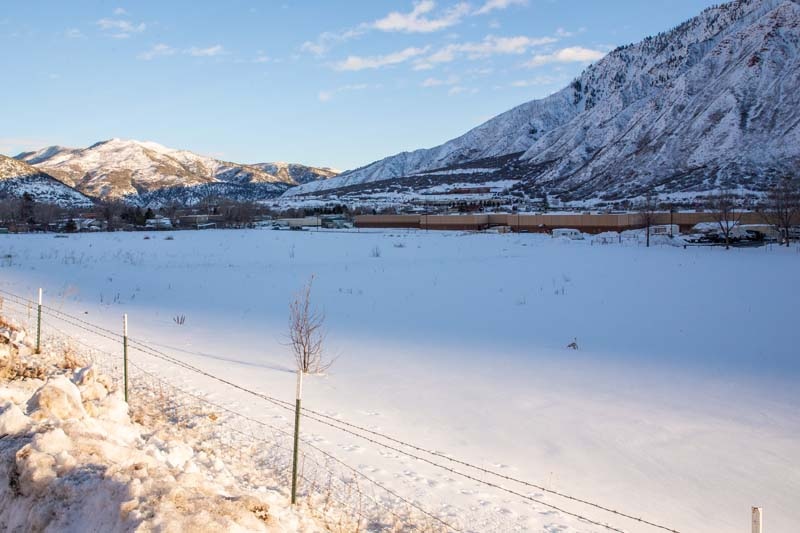
The 16-acre plot of land in question on Donegan Road in West Glenwood.
In an April 2022 op-ed in the Glenwood Springs Post Independent, Marco Dehm, a Glenwood Springs City Council member and former chair of the Planning & Zoning Commission, called the 480 Donegan proposal “one of the best projects I have seen in my time on P&Z.”
Still, the criticisms from residents continued. Among them was the development’s potential impact on evacuation routes in the face of wildfires. Residents recalled recent wildfires that caused severe traffic issues, including the 2002 Coal Seam Fire that ripped through West Glenwood, burning 29 homes and forcing thousands of people to evacuate through the only exit from the neighborhood onto I-70.
Though the developer tried to address this concern, residents remained steadfast in their opposition. For many of them, it wasn’t just about the evacuation routes.
In public comments submitted to the Glenwood Springs city clerk, people expressed fears of too much growth; of too much change; of the development threatening Glenwood’s “small town feel.” One woman wrote: “How about leaving it exactly as it is?” She added, “A nice little horse pasture where wildlife in the area take refuge. A place where little kids can go on a walk with their parents to see horses grazing. What is wrong with maintaining a rural feel in West Glenwood?”
When the council voted 4-3 in the fall of 2021 to approve R2’s annexation request, a group of West Glenwood residents, dubbing themselves the Glenwood Springs Citizens for Sensible Development, collected more than 900 signatures on a petition, hoping it would compel City Council to put the issue to a vote. A special election took place in May 2022; when the votes were counted, about 60% of the nearly 2,400 Glenwood residents who voted rejected the annexation. The 480 Donegan proposal was over.
The vehemence of the anti-development campaign caught Godes off guard. On the outside, the 480 Donegan project checked a lot of boxes: high-density infill (as opposed to suburban sprawl), affordable housing, a new fire station.
“It was everything the community said they wanted through numerous iterations of the comprehensive plan, so I was really surprised by the opposition,” said Godes.
Although nearly everyone he spoke to acknowledged the housing crisis that Glenwood Springs, West Glenwood and the rest of the region were facing, community members had a harder time supporting efforts to address that crisis in their own backyard. Godes saw how deeply many people wanted the community they moved to 30 years ago to look and feel the same—even if it meant service workers, police officers, firefighters and hospital workers had to commute three hours each day to work at the businesses and institutions that make Glenwood Springs the kind of vibrant community that had attracted those residents in the first place.
***
Tony Hershey, one of three Glenwood Springs City Council members to vote against 480 Donegan, grew up in Aspen before attending law school in New York. He moved back to Aspen in 1996 and then to Glenwood in 2005 for a job at the district attorney’s office and bought a house in Glenwood Springs in 2006. He is adamant that the opposition (including his own) from Glenwood Springs residents to the development is not a “I have mine, you go somewhere else” mentality—that it’s not a “NIMBY thing.” Rather, he worries that too much growth will nullify all the reasons people like him chose to live in Glenwood Springs in the first place.
“Not everyone can live here,” he said. “It’s a small town. I’d like it to stay a relatively small town. If you want to double the size of the town, it’s not the same town,” he added, noting he doesn’t want Glenwood to become like one of the sprawling suburban communities that exist along the Front Range.
Hershey maintains that his initial reaction to the 480 Donegan project was “very open-minded,” citing the Diemoz family’s right to develop their private property. But the size of the development and seeing the level of opposition from West Glenwood residents helped turn him against it.
Ultimately, Hershey pushed back on the notion that 480 Donegan was necessary to help make a dent in Glenwood Springs’ housing shortage, noting a few other housing efforts that are underway, including a hotel that the Roaring Fork Transit Authority recently bought to house bus drivers.
“It’s not like we’re doing nothing,” he said.
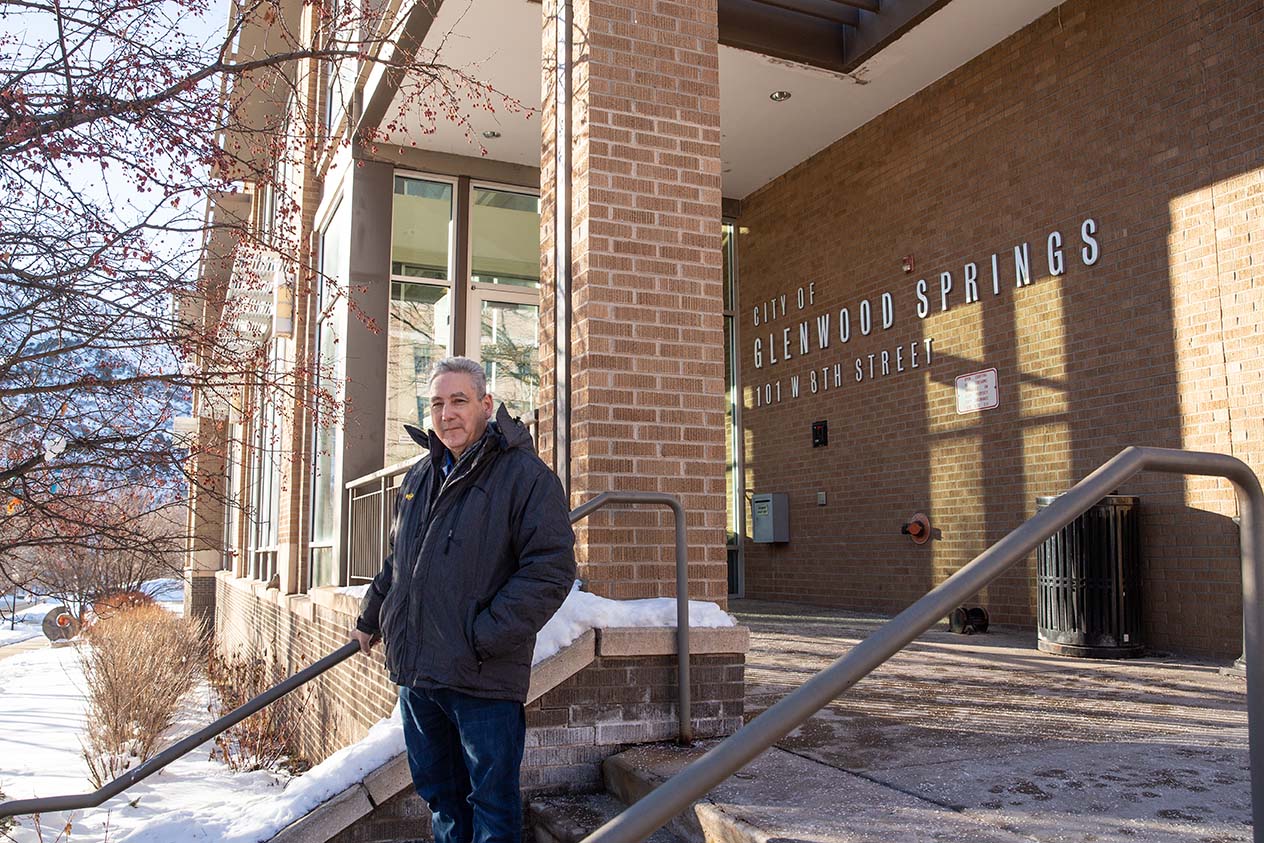
Tony Hershey, the sole Glenwood Springs City Council member to vote against 480 Donegan, stands for a portrait outside of Glenwood Springs City Hall on February 1, 2023.
For Hershey, the real question is not whether Glenwood Springs is doing enough to address its housing crisis, but should it?
When I asked whether workers should have to commute hours a day from down valley to work in Glenwood Springs, Hershey replied, “I think it’s bad. It sucks. I have friends who have to commute every day from Rifle to Aspen,” he said, acknowledging that he’s fortunate to live near his office.
“But you know, you make the choice to work in Aspen, so then you have to live outside of Aspen,” he added, referring to the large number of workers who commute (through Glenwood Springs) to the expensive resort town 40 miles up valley. (It’s not just Aspen’s workers; an estimated 2,400 people commute to Glenwood Springs daily for work, too.)
Hershey is skeptical that affordable housing initiatives function as intended, since a person who works locally and buys or rents a deed-restricted home in Glenwood Springs could one day get a job up valley. Hershey voted against the city’s affordable housing ordinance for new developments with more than 10 units; the ordinance mandates that 10% of all units have rental or price caps. He also voted against a recent ballot measure increasing the lodging tax to invest in workforce housing. Both initiatives passed.
***
Just a few years ago, Glenwood Springs was considered the relatively affordable place to live in the Roaring Fork Valley, but that’s no longer the case as average rents have risen to over $2,800 for a 2-bedroom apartment, and the median home price is more than $860,000 as of January. Now, Glenwood Springs is grappling with the workforce housing crisis that has long challenged its up-valley neighbors like Aspen, Basalt and Carbondale.
Currently, Glenwood Springs has just one snowplow driver who lives in town. The rest commute from western Garfield County, which means that when weather forecasts call for a large snow storm, the city ends up paying for the snowplow drivers to stay in hotels in Glenwood Springs so they can get to work plowing the streets the next morning.
Godes has grown frustrated by the disconnect he sees in so many residents who, all too often, reject solutions to the housing problem they all acknowledge exists.
“People don’t care to have this conversation,” he told me. “Because if you did have this conversation of ‘yeah, maybe they should have a place to live,’ the next question is: where? And then you have the conversation of, well… ‘480 Donegan, no, no, no’… what about somewhere else?”
But in Glenwood Springs, hemmed in by mountains, there are only so many “not here” places in which you can build. The small hobby airport on 63 flat acres south of town that produces no tax revenue would be one option, but according to Godes, many residents have said they want to preserve the airport.
“I don’t know if people are really grappling with what happens if we don’t try to meet this housing demand at least a little,” Godes said. “What it means is a less economically diverse, more gentrified community.”
The irony is that Glenwood Springs’s population has barely grown in the past decade. According to the most recent census data, the city of 9,963 added just 349 residents between 2010 and 2020.
What is changing is the demographics of Glenwood Springs. When Godes moved into his neighborhood, there were plenty of younger families with kids on their street. Now, apart from two other families with kids (both sets of parents are physicians), it’s mostly retirees and second-home owners, he says. According to the 2019 regional housing study, 22% of the Glenwood Springs population growth between 2001 and 2017 was among people over age 65.
And that beloved private pasture on the Diemoz property in West Glenwood? It won’t stay an empty field, either.
In a statement through R2 Partners following the referendum last spring, the Diemoz family pledged to move forward instead on long-held Garfield County approvals—to build a number of storage units as part of a new industrial park.
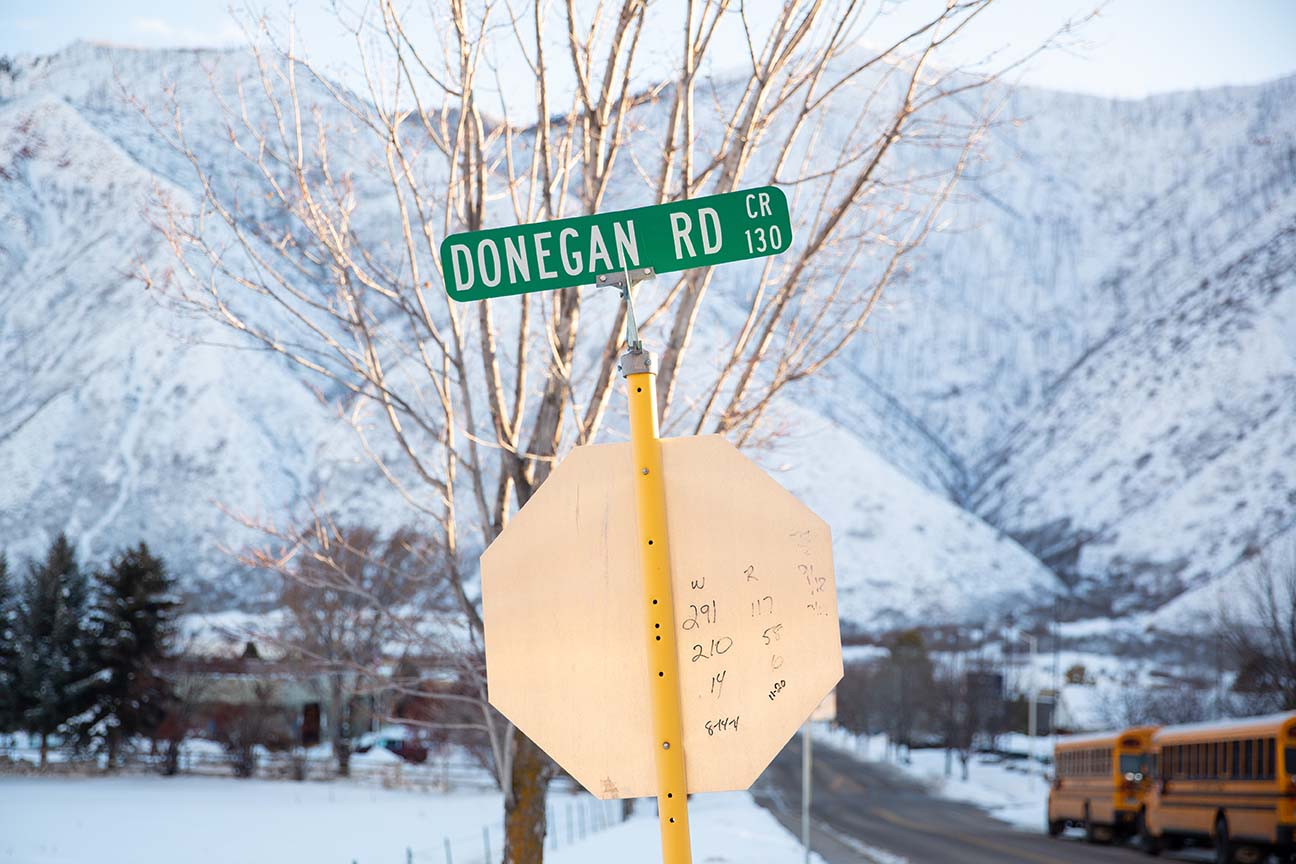
A 16-acre empty lot behind a mall in West Glenwood, Colorado, owned by the Diemoz family. The family partnered with R2 Partners to develop the site into a housing development including apartments and townhomes.




